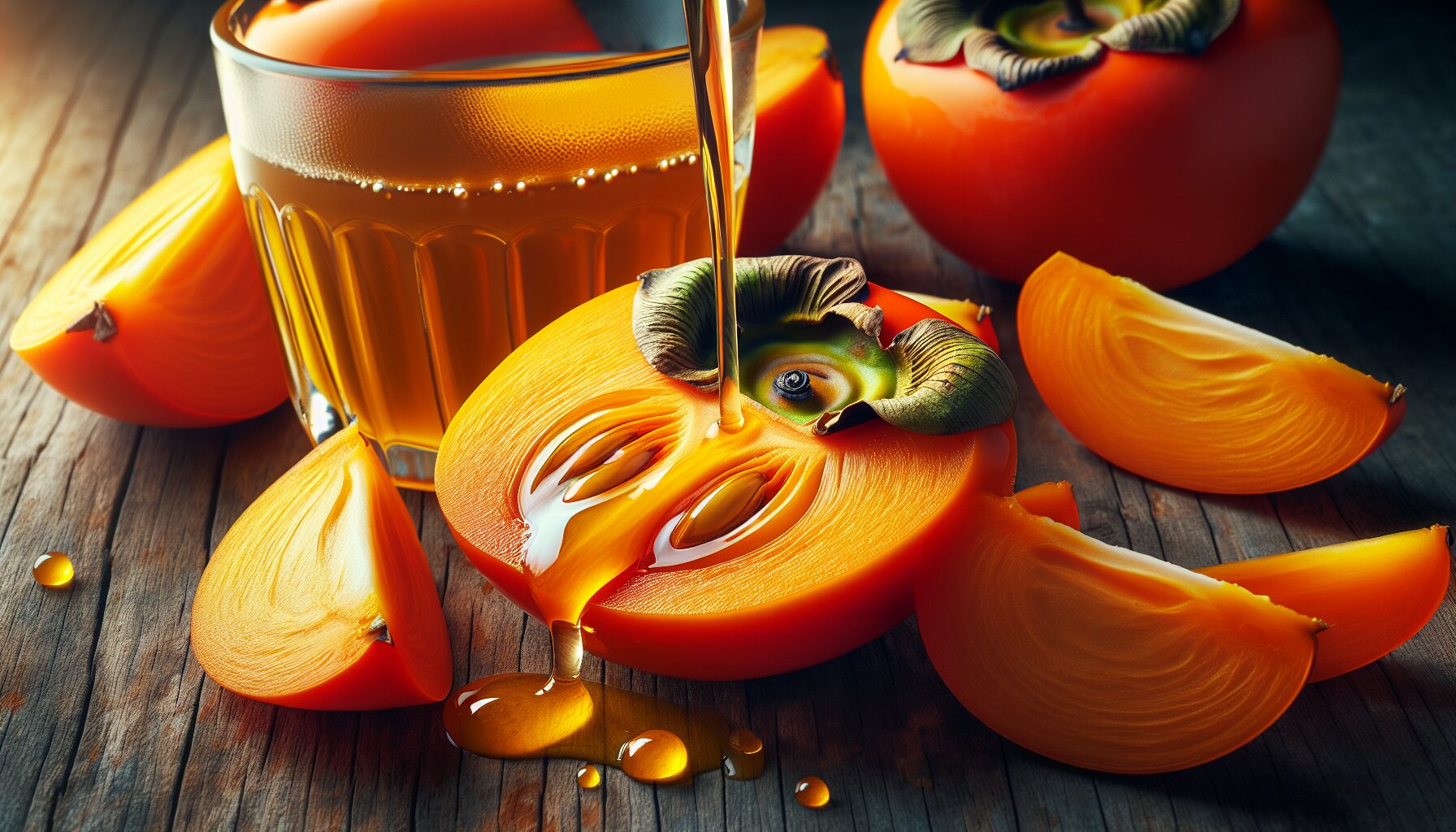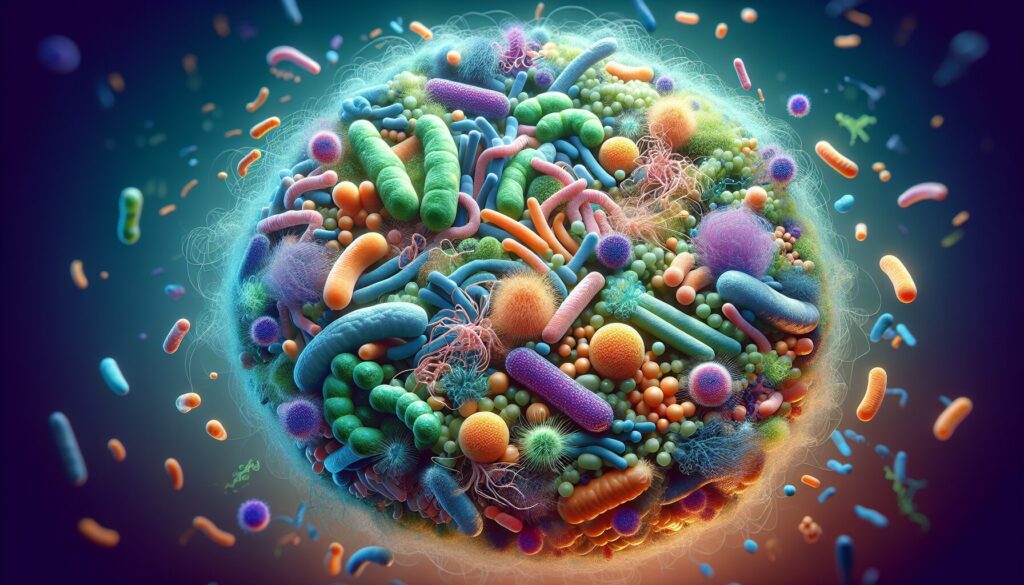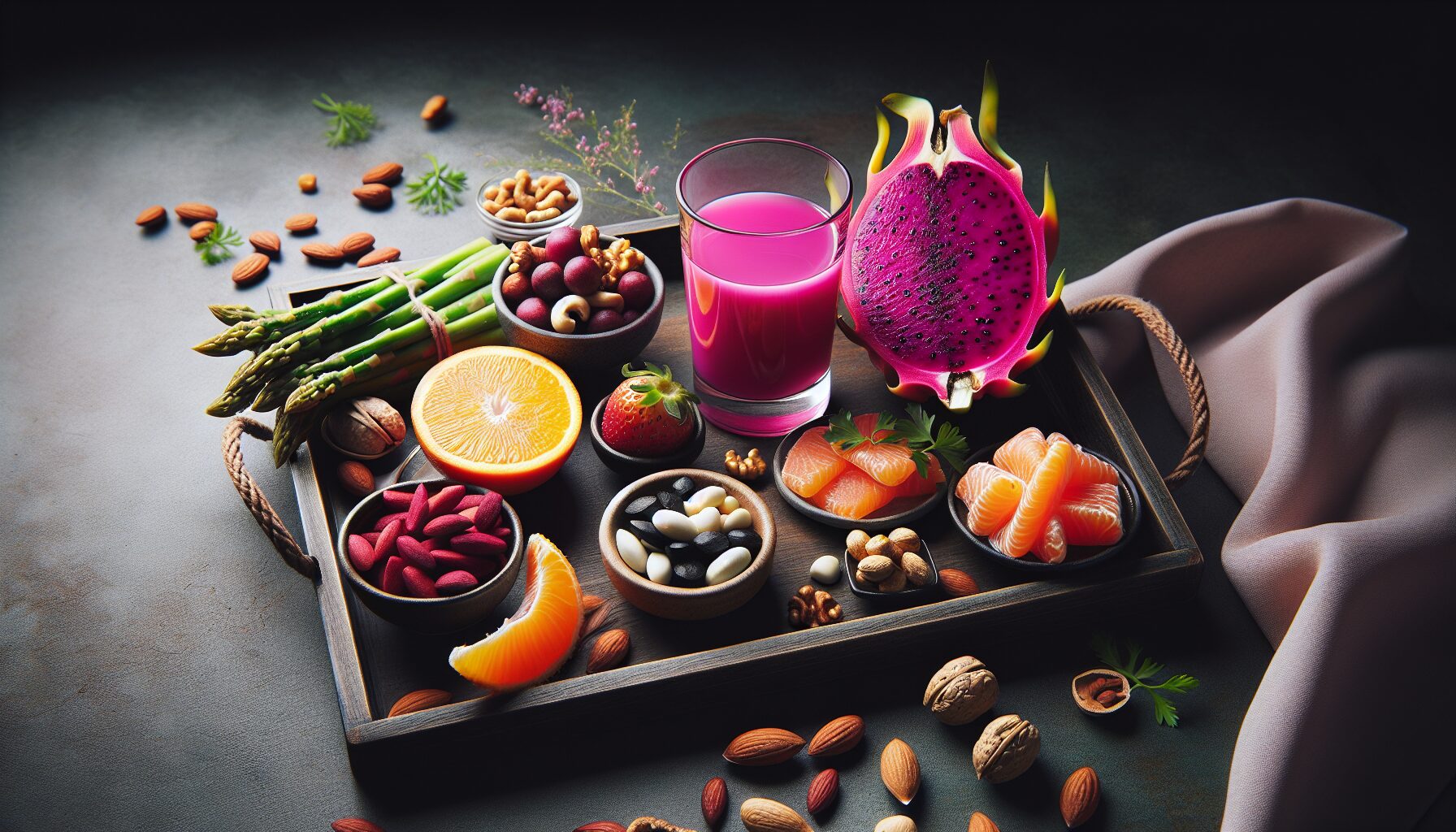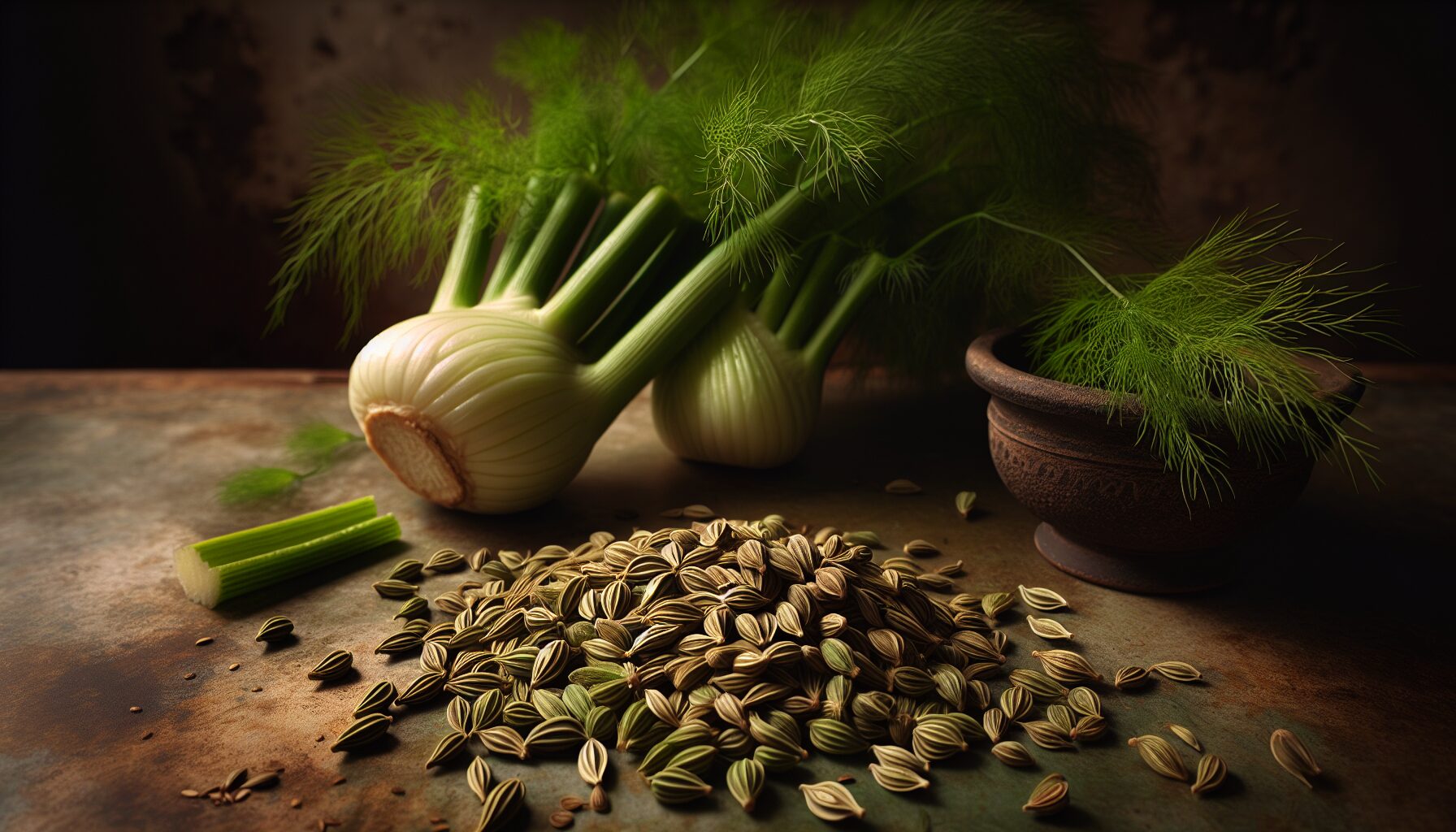
Health Benefits Of Persimmon Fruit
The persimmon fruit is recognised for its delicious and sweet taste, providing potential health benefits through micronutrient density. Persimmon fruit is also considered to be rich in antioxidants, proving further potential benefits. The leaves of persimmon fruits are also rich in polyphenolic antioxidants, which is usually a good indicator of how strong the antioxidant capacity of the fruit is. Diets rich in exotic fruits and vegetables are linked to reductions in heart diseases and other chronic diseases.
This exotic fruit can easily be turned into a juice or included as part of an antioxidant smoothie with more bitter antioxidant extracts, like ginger root. You could also include this fruit as part of a healthy breakfast. It is easy to see why persimmon fruit, native to Asia,has become one of the fastest growing fruit crops globally.
Eating foods that are nutrient rich and full of bioactive compounds, such as persimmon fruit, are thought to be healthy because of their ability to reduce oxidative stress. Oxidative stress contributes to risk of disease, especially inflammatory diseases. As a fruit, persimmon is also rich in fibre. Healthy levels of dietary fibre from persimmon fruit will encourage beneficial gut microbes to grow, which provides potential health benefits. While dietary fibre is also considered to be preventative of colon cancer and heart diseases.
In this article, we will look at the reasons why regularly eating persimmon fruit could have health benefits and support your overall wellness.

Persimmon Fruit Nutrients
This fruit is rich in nutrients such as vitamin C, potassium and iron. While it is low in fats and contains a considerable amount of natural carbohydrates. Persimmon fruit is measured to contain 4.66 grams of fructose, 6.82 grams of glucose and 1 gram of sucrose per 100 grams, along with some healthy dietary fibres.
A fresh Persimmon fruit juice may be a lot more nutritious and healthier than a regular cola. A standard cola contains up to 10g of processed sugars per 100grams, usually pure sucrose, compared to 12.5 grams of natural total sugars that are in Persimmon fruit. Let’s take a look at some of the key nutrients in persimmon fruit.
Potassium
The persimmon fruit has 310mg of potassium per 100 grams of persimmon fruit, which contributes to your total potassium RDA. Your RDA for potassium is considered to be between 2,500mg and 3,400mg depending on different factors. This is only a guideline minimum intake and potassium is needed by every tissue in the body. It is an essential electrolyte required for optimal nerve and muscular functioning.
Persimmon fruit adds a significant amount of potassium to your RDA for the day. Improved potassium levels are thought to reduce risk of stroke and heart diseases. This can be around a 20% reduced risk of stroke and this is thought to be due to its blood pressure lowering effect. Potassium sufficiency also reduces risk of kidney stones, which can occur from high blood calcium and protein levels. Potassium sufficiency may also contribute to more optimal bone health.
Iron
The persimmon fruit contains 2.5mg of iron per 100 grams of persimmon fruit. The guideline RDA for iron is between 8mg and 18mg depending on different factors. For a fruit, persimmon makes up a significant amount of your RDA for iron.
The main use for mineral iron in the body is for red blood cell production. Iron can also be a brain stimulatory molecule, promoting higher blood flow rates and increasing oxygen levels in the blood. This could assist with supporting brain functioning in mild amounts. Iron influences various bodily processes and promotes physical endurance, reducing likelihood of fatigue.
Riboflavin Or Vitamin B2
Per 100 grams of persimmon there is 2.5mg of vitamin B2. This contributes significantly to your RDA of vitamin B2, which is between 1.1mg and 1.3mg.
This B vitamin is a mitochondrial supporting cofactor that supports energy production and healthy growth. Vitamin B2 is absolutely essential for our metabolism and supports the activity of other enzymes as well.
Because of the high riboflavin content in persimmon, this fruit may have energy supporting and anti-fatigue properties. Levels of riboflavin are also linked to cognitive function, so persimmon may also support optimal brain health.
Dietary Fibre
Persimmon fruits contain about 2 grams of dietary fibre per 100 grams of fruit. Dietary fibres are complex carbohydrates and are often parts of cell walls. Dietary fibres are considered to be a prebiotic, encouraging beneficial gut bacteria to develop, which supports optimal gut health.
Our body doesn’t really digest dietary fibres that well. This means that our gut bacteria can use them as food. That drives beneficial gut bacteria to grow and may support our health through improving immune responses, lowering inflammation in the gut and supporting brain health. Unhealthy gut microbes may drive intestinal inflammatory responses through activating the immune system.

Persimmon Fruit Antioxidants
As with many exotic fruits, persimmon is known for its strong antioxidant content. The leaves of persimmon fruit are thought to be richer in antioxidants than the fruit. These contribute significantly to the potential health benefits from persimmon fruit, simply because higher body antioxidant status is preventative of developing various diseases.
Vitamin A
Persimmon Fruit contains around 80µg of vitamin A per 100 grams of fruit. The current RDA for vitamin A is 700µg for women and 900 µg for men. This means that persimmon fruit contributes significantly to your daily intake of this antioxidant vitamin. It is also the carotenoids the provide this fruit with its characteristic bright orange colouration.
The main use of vitamin A is in the eyes and vitamin A is essential for vision. Vitamin A and vitamin A like molecules may influence diseases such as age-related macular degeneration through antioxidant effects. This is a leading cause of blindness worldwide. Some vitamin A like molecules, which are found in persimmon fruit and also contribute to your vitamin A RDA are lutein and zeaxanthin.
Vitamin C
The persimmon fruit contains approximately 66mg of vitamin C per 100 grams of persimmon fruit, which is about two thirds of your vitamin C RDA for men and nearly meets a woman’s total RDA.
Vitamin C or ascorbic acid is absolutely essential for the body. Vitamin C is one of the body’s core antioxidants, preventing damage from harmful free radical molecules too.
Free radicals create a lot of issues within the body. They damage DNA causing cells to malfunction, which potentially leads to cancers. Free radicals promote inflammation which is a cause of various diseases. Antioxidants, such as vitamin C, intercept these energetic free radical molecules and prevent them from injuring the body.
Vitamin C helps to maintain optimal immune cell production. This includes various white blood cells that prevent you from becoming sick. Some of these cell can also remove cancerous cells from the body. Vitamin C can also help the body to repair itself from wounds, stimulating the production of collagen. Collagen production in the skin is also linked to more youthful looks, it forms a base for connective tissues in the body. Vitamin C status may improve optimal blood health, through increased iron intake and red blood cell formation.
These are just some of the potential health benefits of regular persimmon fruit consumption and higher vitamin C status.
Persimmon Polyphenols
Fruit polyphenols are massive when it comes to antioxidant ability. They help to protect levels of more crucial antioxidants and vitamins that are used throughout the body. Persimmon is rich in polyphenols such as p-coumaric acid, catechin, epicatechin, epigallocatechin and proanthocyanidins.
Persimmon contains about 15mg of catechin and 640mg of proanthocyanins. Proanthocyanins are condensed tannins. These are the highest quantity bioactive polyphenols in persimmon fruit and will heavily contribute to resulting health benefits.
Free radicals cause oxidative stress within the body and tissue damage. Just like vitamin C, persimmon polyphenols offer protection from free radical damage. This is backed by research which suggests that these polyphenols offer significant free radical protection and may assist in the prevention of certain diseases.
Catechins offer an antioxidant capacity similar to glutathione and vitamin C. Because of their strong antioxidant power, proanthocyanins may help to prevent cancers developing in the intestines and inner organs. Some early studies with persimmon extracts indicate that their bioactive molecules may prevent DNA damage. Persimmon tannins are 20 times more potent than the antioxidant vitamin E.
The only drawback of tannins is that they are also protein binding, so may slightly inhibit protein breakdown. However, some studies indicate they could have anti-viral activities against flu viruses.

Persimmon Fruit Benefits For Heart Health
Persimmon fruit antioxidants are thought to be preventative in the development of cardiovascular diseases. An important preventative feature of persimmon fruit antioxidants is their ability to prevent the oxidation of LDL, which is huge risk factor in the development of cardiovascular diseases. Oxidised LDL creates collects in the blood vessels, creating inflammatory stress, which triggers atherosclerosis.
Atherosclerosis is a big risk factor for heart attacks and strokes. Proanthocyanins from persimmon, for example, may help to prevent LDL oxidisation. This would mean that the Persimmon fruit may have benefits for heart health. Initial studies suggest that persimmon fruits could reduce total cholesterol, in addition to oxidised LDL. Persimmon fruit may initiate mild weight loss. These polyphenols also bind to metal ions, which could further help to prevent oxidative stress in the blood.

Persimmon Fruit Benefits For Diabetes
Research on the bioactive compounds within persimmon fruit, especially proanthocyanidins, suggest that they could provide benefits for diabetes prevention and diabetes risk management. These are antioxidant polyphenols that could help to reduce oxidative stress throughout the body and assist with normal mitochondrial metabolism.
Elevated antioxidant levels are linked to improved glucose use and reduced insulin resistance, which may also support muscle performance at the gym. The antioxidant catechins in persimmon fruit may directly improve glucose use and intake into the muscles. Antioxidants are also crucial for muscle recovery from exercise.
The potassium content of persimmon fruit may also have benefits for reducing risk of diabetes. This is because potassium is required for insulin to be released from the pancreas and reduces risk of glucose intolerance. This is supported by evidence that persimmon fruit could improve glucose levels in the blood of diabetics.
Another benefit of note from persimmon fruit for diabetes is that it contains natural sugars and anti-inflammatory prebiotic fibre, rather than processed sugars or additives that have a higher risk of triggering insulin resistance. That would make this fruit a healthier alternative to processed drinks and foods, full of metabolism supporting antioxidants. In fact, one study recommended persimmon fruit juice as anti-diabetic support for diabetics based on clinical results.
This is supported by studies that show how persimmon extract may improve insulin resistance when regularly consumed for 12 weeks.

Persimmon Fruit Benefits For Skin
The skin is easily damaged by free radicals and the outside environment. Persimmon fruit and leaf extracts may offer protective benefits to the skin.
There hasn’t been much research on the uses of persimmon fruit topically on the skin. Current research is in its infancy and persimmon fruits are used is cosmetic soap products.
However, the high antioxidant content of the leaves and the whole persimmon fruit mean that this food could be used a bioactive skin cream. The antioxidant polyphenols within persimmon extracts could work on the skin to reduce oxidative stress and promote anti-ageing. Antioxidants in fruit and leaf extracts are considered to be anti-inflammatory and could offer photo-protection.
Research indicates that persimmon fruit extracts could encourage more optimal collagen production and provide an anti-wrinkle effect. The leaves of persimmon are treasured for their rich antioxidant content, they are used to treat burns and could also have anti-wrinkle effects. Some studies suggest that persimmon leaf has anti-cancer properties.
While researchers are looking in more detail at how persimmon fruit extracts could benefit the skin, it is clear that persimmon fruit has potential health benefits such as

Summary
Persimmon fruit is nutrient dense, offering many antioxidants, minerals and vitamins that can provide potential health benefits.
This fruit can easily be turned into a fresh and nutrient rich juice that provides a healthier alternative to less nutritious processed drinks. Eating foods that are full of nutrients are thought to be healthy because of their ability to reduce oxidative stress, which contributes greatly to risk of diseases.
Persimmon fruit contains a considerable amount of nutrients including potassium, vitamin C, vitamin A and iron.
Potassium is an essential electrolyte that supports muscular functioning, while it may significantly reduce risk of strokes. There seems to be high levels of iron in persimmon which promotes physical endurance. Persimmon may have additional energy supporting and anti-fatigue properties through high riboflavin levels.
Prebiotic dietary fibre from persimmon fruit helps to support gut microbe health, which support brain health and reduces inflammation.
Persimmon fruit is well known for its rich antioxidant content. Vitamin C is abundant in persimmon, supporting immune system functioning, collagen production, iron intake and protects the body from oxidative stress. Vitamin A supports optimal eye health. Persimmon antioxidant polyphenols, such as proanthocyanins and catechins, offer free radical protection to against factors that cause cancer or cardiovascular diseases.
Research is exploring the use of persimmon extracts topically on the skin because they could have anti-ageing, anti-wrinkle and photoprotective effects.
Because of its nutrient density persimmon fruit has various potential health benefits from assisting with more optimal muscle performance to being a natural preventative for diabetes.
For more interesting articles, see the main articles page below.





